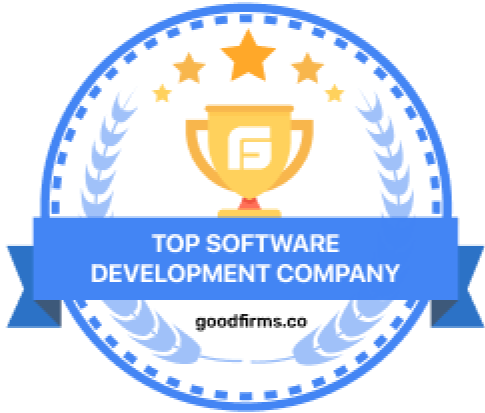A highly adept step for organizations to remain ahead of competition is to integrate Artificial Intelligence (AI) into the business fabric. Given the complexity and cost, small and medium-sized enterprises have hesitated considerably, but things are changing now with the arrival of White Label AI SaaS. The model is changing the way business operation takes place by allowing businesses to adopt powerful AI tools without needing in-depth technical competence or significant investment in the development process.
This article explores 10 crucial things you should know about White Label AI SaaS, including its benefits, real-world use cases, how to choose a suitable solution, and some best practices to implement.
What is White Label AI SaaS?
White Label AI SaaS involves pre-built and customizable AI-powered software solutions that companies can rebrand and integrate into their own services. These solutions are developed by third-party vendors but are easy to adapt to the specific needs of a business.
Key Features:
- Customization: Businesses could customize these solutions by adding their branding, changing the user interface, and configuring functionalities to match their unique needs.
- Seamless Integration: Most the white-label AI tools offer integration with existing systems through APIs, hence they can add AI features with as little disruption to the business as possible.
- Ready-to-Use: Where traditional AI development involves massive coding and infrastructure, white-label AI tools come pre-configured, hence reducing the time to market considerably.
White-label AI SaaS proves especially beneficial to companies that do not have internal expertise for building AI solutions from the ground up. For instance, an e-commerce company can use a white-label AI tool to power personalized product recommendations without building its own in-house data science team.
Why White Label AI SaaS is Crucial?
White-label AI solutions democratize access to AI, giving all business sizes that would once have been exclusive to tech giants powerful technology to remain ahead in the fast-evolving digital world without expensive development costs.
Features of White-Label AI Solutions:
White-label AI solutions are highly versatile and come with various features that distinguish them from the off-the-shelf software products. These features make it easier for businesses to implement and scale AI technology across their operations.
Custom Branding
A standout feature of white-label solutions is the full branding capacity of the software to use your brand’s identity.
Customization in this regard includes:
- Logo and Color Scheme: Businesses can alter the look of the platform to better fit with their branding.
- UI/UX Design: Alter the user interface and user experience to ensure coherence with previous products or services.
For example, a marketing agency might take an AI chat bot that has been developed as a white-label solution and incorporate it into its website. That way, the bot feels like an organic extension of its service line.
Scalable Infrastructure
White-label AI tools are built in a scalable way so that they can grow according to your business needs. You may be looking to expand either your user base or operational capacity, but the platform can easily adapt to increased demands without necessarily requiring a full system overhaul.
Example:
A fast-growing SaaS company might start with a white-label AI platform for 100 users but can easily scale the infrastructure to accommodate thousands without needing additional development resources.
Pre-Trained Models and Machine Learning Algorithms
Many white-label AI SaaS solutions come with pre-trained models optimized for common business tasks, such as:
- Sentiment Analysis
- Image Recognition
- Natural Language Processing (NLP)
These pre-trained models save businesses the hassle of building machine learning models from scratch, and they can go ahead and focus on applying the technology in practical application.
For instance, a content creation agency could use a white-label AI tool with sentiment analysis capabilities to automatically classify user feedback into positive, negative, and neutral categories.
Data Security and Compliance:
Data security is of great importance while merging AI with white-label tools. The top vendors provide adequate security features such as encryption, secure APIs, and pertinent regulations (GDPR, HIPAA, etc.).
It will ensure that the white-label AI solution uses by business houses will save it from potential data breaches along with applicable industry-specific regulation compliances. For example, an AI tool applied in the healthcare sector to analyze a patient’s data has to be in full compliance with the HIPAA regulation.
White Label AI SaaS Use Cases
White-label AI SaaS is available in most industries and functions. Some effective practical use cases to demonstrate how it works are discussed below:
Customer Support through AI Chatbots
AI chatbots would be an outstanding example of white-label AI. These bots could be implemented on any type of website, app, and customer support portal to provide instant service, to handle enquires, and perform repetitive tasks in real-time.
Marketing Automation and Personalization
White-label AI tools help companies automate marketing campaigns, including sending personalized emails, recommending products, and creating retargeting ads.
Predictive Analytics for Business Intelligence
Predictive analytics tools running on artificial intelligence help businesses predict trends, build better decisions, and identify opportunities for growth.
Fraud Prevention in Banking and Finance
White-label AI SaaS solutions are being increasingly employed in banking and financial institutions to detect some fraudulent transactions and reduce financial risks. White-label AI SaaS solutions analyze patterns and flag anomalies in real time, thereby aiding banking and financial institutions.
Predictive Maintenance for Manufacturing
AI is applied in the manufacturing industry by predicting equipment failures beforehand and preventing machines from going down, thus helping prevent expensive maintenance.
Healthcare Diagnostics
White-label AI platforms are used to enhance the accuracy of diagnosis and efficiency in treatments. They aid in doing faster analysis than human counterparts on medical images, patients’ data, and test results.
Choosing the Right White Label AI Solution
Selecting the right white-label AI SaaS solution is critical for ensuring that the tool meets your business needs while providing long-term value. Here are some critical factors to consider:
Vendor Reputation
Before choosing a vendor, research their track record, customer reviews, and case studies. A reputable vendor will have a proven history of successful implementations.
Integration with Existing Systems
The AI tool must be able to integrate well with your existing tech stack: it may encompass your CRM, website, or data analytics platform. When all is well-integrated, the flow of data is seamless and reduces time for implementation.
Customer Support and Updates
Ongoing support is important. Make sure that the vendor offers satisfactory customer service besides regular updates-especially on security patches and feature enhancements.
Scalability and Flexibility
Select a scalable solution with your business growth in mind. Find flexible tools that make easy customization possible for future needs.
Pricing and ROI
Carefully evaluate pricing models. Though white-label AI tools are relatively less expensive than developing your in-house solutions, a good value for money needs to be assured in the case of any business.
Challenges in Implementing White Label AI Solutions
Despite the numerous benefits of white-label AI, businesses will face challenges as they implement these solutions.
Integration Difficulty
When it comes to white-label AI, the integration is easy; however, businesses will still have problems, especially when dealing with legacy systems. This could be compatible issues or even problems that may cause delays in data synchronization.
Vendor Lock-In
Dependent software functionality on third-party vendors may open up risks when such a vendor stops developing the software or does not provide sufficient support.
Data Privacy and Compliance Issues
Data, especially sensitive and proprietary one, is typically sensitive for many industries, such as health care and finance. A white-label AI tool would be needed to keep up with regulatory requirements.
Limitations on Customization
Some white-label solutions may not be flexible enough in meeting your specific needs. Businesses might be forced to do more customization work in such scenarios.
The Future of White Label AI SaaS
The future of white-label AI SaaS is promising, as advancements in AI technology continue to shape various industries. Several emerging trends are expected to drive the growth and adoption of these solutions.
Enhanced Customization Features
As businesses seek increasingly personalized solutions, AI vendors are likely to offer more advanced customization options. This could include more granular control over AI algorithms, allowing businesses to adjust how AI interprets and processes data.
For example, an e-commerce platform might want to fine-tune an AI’s product recommendation algorithm based on seasonality, location, or inventory. Vendors will be able to provide such functionality in the future.
Internet of Things (IoT) Integration
The progress in IoT devices presents new channels for white-label AI solutions. The ever-increasing numbers of IoT devices across healthcare, manufacturing, and logistics will rely on AI to process the large data streams generated by these devices.
For example, white-label AI solutions for smart cities can be used to analyze data gathered through traffic sensors, public transport systems, and environment monitors and optimize the flow of traffic, save energy consumption, and predict maintenance.
Advanced Natural Language Processing
Natural Language Processing (NLP) will further evolve with the ability of white-label AI tools, so that they have better real-time interaction with customers. The future of NLP will be able to understand what is on the customer’s mind, making chatbots and assistants all that more capable.
Example: A customer service chatbot could be able to not only answer questions but to identify emotional tones in customer conversations and escalate urgent issues to human agents accordingly.
Increased Focus on Ethical AI
As AI becomes more integrated into business operations, there will be increased scrutiny on how AI decisions are made. Ensuring that white-label AI solutions adhere to ethical guidelines will be a growing concern. This includes transparency in AI models, ensuring fairness, and minimizing bias.
Vendors will likely focus on ethical AI frameworks to ensure that the technology remains trustworthy and reliable.
Conclusion
White label AI-based SaaS has enabled businesses of any size to take advantage of cutting-edge AI technology, regardless of the availability of large funds or specific expertise. Using AI for enhanced customer service through chatbots, personalized marketing recommendations, or predictive analytics for better business decisions is made possible through its limitless features.
According to the author, by choosing the best white-label AI tools, companies can reduce operational costs and achieve considerably higher efficiency along with delivering a better experience to their customers. The future holds exciting potential for white-label AI SaaS as AI technology continues to evolve and offer businesses even more advanced capabilities and deeper customization options.
White-label AI is no longer a luxury that only large corporations can afford-it offers businesses of all sizes an opportunity to innovate and grow within today’s increasingly competitive landscape. With the proper strategy and execution, white-label AI solutions can become the most important part of your business’s success story.
If you are a business looking to get started with white label AI SaaS solutions, we are here to help you. You can get in touch with us and let’s take it forward. Let’s speak!

Start a Project with Ajackus

































